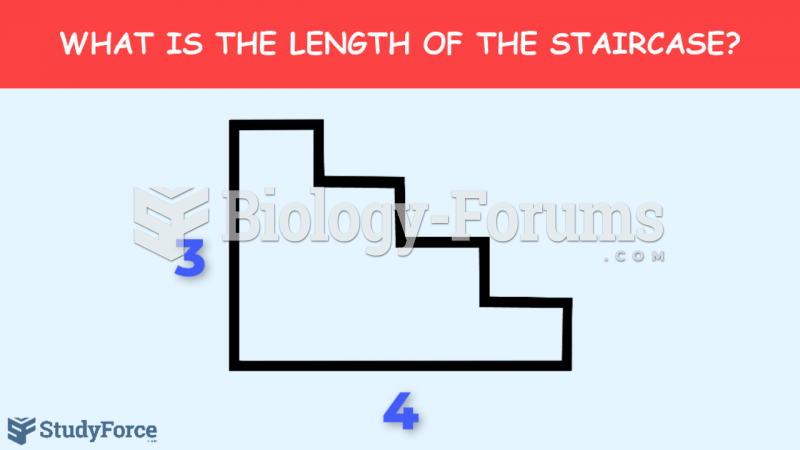|
|
|
The average office desk has 400 times more bacteria on it than a toilet.
Certain rare plants containing cyanide include apricot pits and a type of potato called cassava. Fortunately, only chronic or massive ingestion of any of these plants can lead to serious poisoning.
Glaucoma is a leading cause of blindness. As of yet, there is no cure. Everyone is at risk, and there may be no warning signs. It is six to eight times more common in African Americans than in whites. The best and most effective way to detect glaucoma is to receive a dilated eye examination.
The most common treatment options for addiction include psychotherapy, support groups, and individual counseling.
Thyroid conditions cause a higher risk of fibromyalgia and chronic fatigue syndrome.







